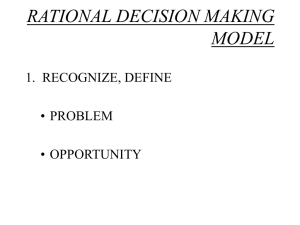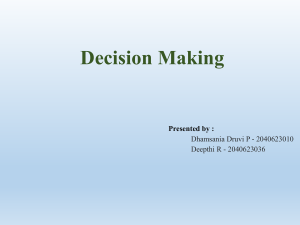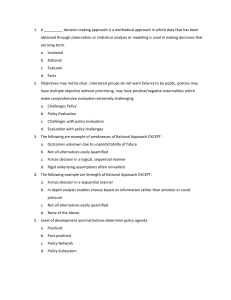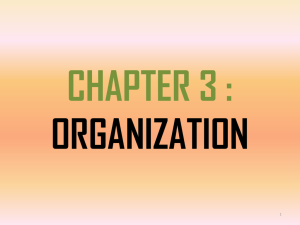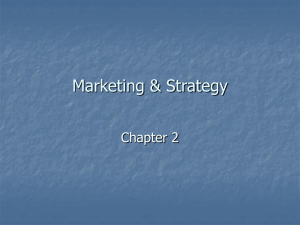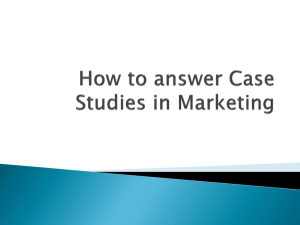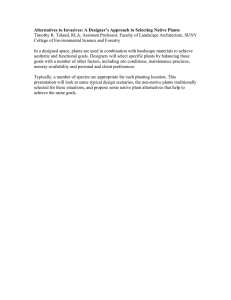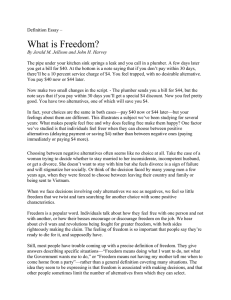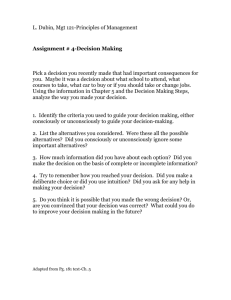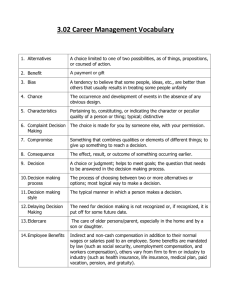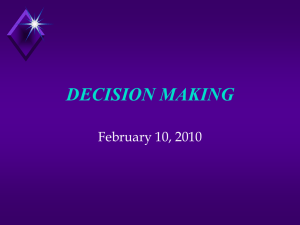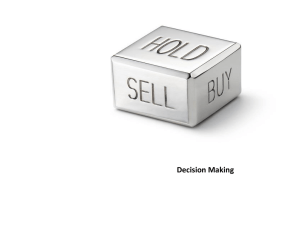Individual Decision Making Various type of Consumer Problem
advertisement
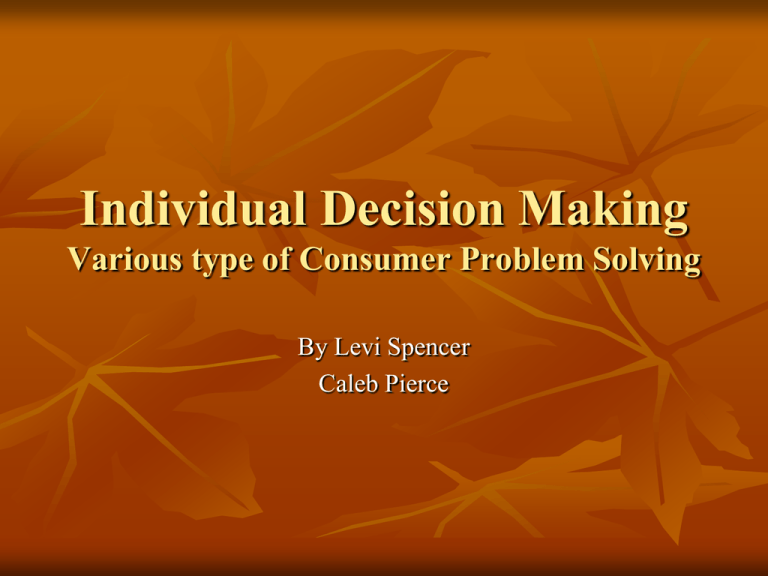
Individual Decision Making Various type of Consumer Problem Solving By Levi Spencer Caleb Pierce Consumer Problem Solving 5 Steps Recognition Information Search The choice to be made from the available alternatives Purchase Decision Process in which consumer survey’s his or her environment for important data to make reasonable decisions Evaluation of Alternatives When a consumer sees a difference between their current state of affairs and some desired ideal state Consumers use their evaluative criteria to judge the merits of competing options Consumption Consumption is an important part of the process because it influences future purchase decision making Perspectives on Decision Making Rational Perspective People calmly and carefully integrate as much as information as possible with prior knowledge of a product. Consumers then weigh the pluses and minuses of each alternative to arrive at a satisfactory decision. The rational decision making procedure could be effected by purchase momentum Marketing implications Products can be developed to emphasize a consumers rational purchasing behaviour Behavioural Influence Perspective This decision is made under conditions of low involvement. The consumers decision is a learned response to environmental cues. Eg. When a person decides to buy on impulse something that is promoted as a surprise special Marketing Implications The producers market the characteristics of the environment. Physical surroundings and product placement will influence your target markets. Experiential Perspective This is a highly involved decision for the consumer. It’s an approach expressing the Gestalt or totality of the product or service experience, focusing on consumers effective responses in the market place. This can be used to help explain why a consumer chooses a particular type of art, music, or even a spouse. Marketing Implications Marketers should focus on measuring the consumers affective response to products or services and develop offers that elicit appropriate subject reaction Types of Consumer Decisions Habitual Decision Making Decisions that are made with little or no conscious effort This is an efficient way for consumers to operate because it minimizes time and energy spent on mundane purchases Low cost Frequent/ familiar decisions Limited Problem Solving Consumers use simple decision rules to choose among alternatives Cognitive shortcuts enable consumers to fall back on general guidelines when making the purchase Occurs in situations when alternatives are similar, choices made in store, and are based upon weakly held beliefs Extended Problem Solving This problem solving corresponds most closely to the traditional decision making perspective The eventual decisions perceive to carry a fair degree of risk Consumer collects information both internally and externally Used for infrequent and unfamiliar purchases evaluating how each brand attributes will satisfy some set of derived characteristics
